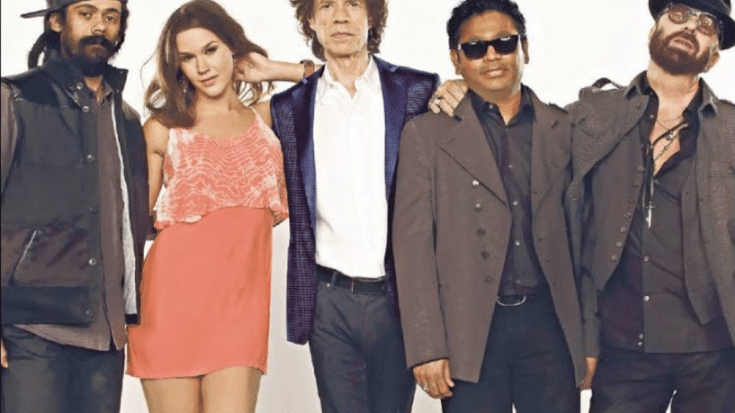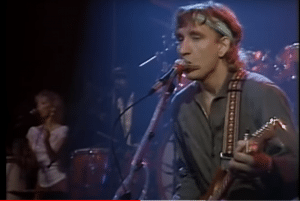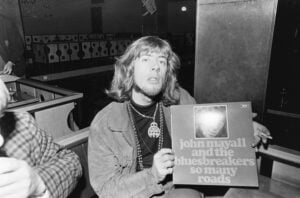5 Classic Rock Supergroups That Underwhelmed

via The Music Machine Gun / YouTube
The music scene has often buzzed with the excitement of ‘supergroups,’ bands formed by artists who achieved fame prior to the group’s formation. This concept has spawned some of the most legendary music when the chemistry is right, but not every combination of rock stars leads to a masterpiece. Here, we’ll delve into five classic rock supergroups whose output didn’t quite match the high expectations set by their individual members’ past successes.
1. Blind Faith
When members of Cream and Traffic came together to form Blind Faith, the anticipation was sky-high. The lineup, featuring Eric Clapton, Steve Winwood, Ginger Baker, and Ric Grech, certainly promised fireworks. Fans expected an explosive sound from this talented ensemble. However, the group’s eponymous 1969 album, while containing some memorable moments, didn’t live up to the collective potential of its members’ previous work. The album had a few standout tracks but ultimately lacked the consistency and edge that listeners hoped to hear from such a rock pedigree.
Not helping matters was the fact that Blind Faith disbanded after just one year and a single album. This short lifespan meant there was little time for the band to evolve or refine their sound. Live performances were met with mixed reviews, and internal tensions added to the narrative that while the group had monumental promise, it delivered an underwhelming result in the archive of rock history.
2. Asia
Born out of the fragmentation of several progressive rock bands, Asia seemed poised to take the 80s rock scene by storm. Band members came from the ranks of Yes, Emerson, Lake & Palmer, and King Crimson, all innovators in their own right. Their self-titled debut in 1982 actually achieved significant commercial success, mostly thanks to the hit single “Heat of the Moment.” Yet, for many rock purists, Asia’s sound was a dramatic shift away from the complex musicality the members were known for, drifting towards arena rock with an eye on mainstream appeal.
This move towards a more radio-friendly sound disappointed many of the members’ die-hard fans. It was a marked departure from the artistic and boundary-pushing exploits associated with their prior bands. Over time, even its widespread popularity couldn’t shield Asia from the critique that their music had forsaken the progressive rock soul for something far more conventional.
3. GTR
The mid-80s heralded the formation of GTR, a band combining the guitar talents of Steve Hackett from Genesis and Steve Howe from Yes. On paper, the collaboration seemed destined for greatness, especially for aficionados of intricate guitar work. When they released their self-titled album in 1986, the single “When the Heart Rules the Mind” fared well on the charts, but the album as a whole received lukewarm reviews. The criticism often cited a lack of cohesion and over-reliance on the period’s production techniques, which felt incompatible with the organic talent behind the guitars.
GTR’s venture into the rock realm was short-lived. They disbanded shortly after their first tour, mainly due to financial issues and managerial disagreements. Critics and fans alike felt that the promise of masterful guitar-driven music was never fully realized, and what was supposed to be a powerful fusion of two iconic guitarists ended up as a footnote in the annals of classic rock.
4. The Power Station
The Power Station emerged in the mid-80s with a style that melded rock with dance in a way that aimed to capitalize on the popularity of both genres at the time. Members hailed from successful bands like Duran Duran and Chic, alongside the vocal prowess of Robert Palmer. Their most notable tracks, including “Some Like It Hot” and “Bang a Gong (Get It On),” provided a burst of energy on the airwaves and even enjoyed chart success. Despite this, the overall response to the band was one of disappointment, as the output didn’t match the talent involved.
While the group enjoyed a glimpse of success, it was ultimately short-lived. They were unable to sustain the momentum and keep their audience engaged beyond their initial hits. Many felt that the confluence of rock, pop, and funk elements never quite melded into a cohesive sound, leaving fans of the individual members disappointed by what was perceived as a missed opportunity for something truly groundbreaking.
5. SuperHeavy
SuperHeavy promised a compelling fusion of different musical styles when it brought together Mick Jagger, Dave Stewart, Joss Stone, Damian Marley, and A.R. Rahman. Launched with a prospect of blending rock, soul, reggae, and world beats, the group sparked curiosity and excitement. However, upon the release of their debut album in 2011, the musical experiment was met with mixed reactions. Although there were moments of brilliance, many critics felt the album was unfocused and failed to live up to the significant potential of its star-studded lineup.
The underwhelming reception signaled a disconnect between the group’s ambitious goals and its final product. Despite the members’ incredible artistry and individual achievements, the project did not achieve the kind of praise or longevity expected, fading from collective memory quickly after its release. SuperHeavy’s attempt at genre-blending, while commendable, was ultimately not enough to cement their status among the greats in rock history.













